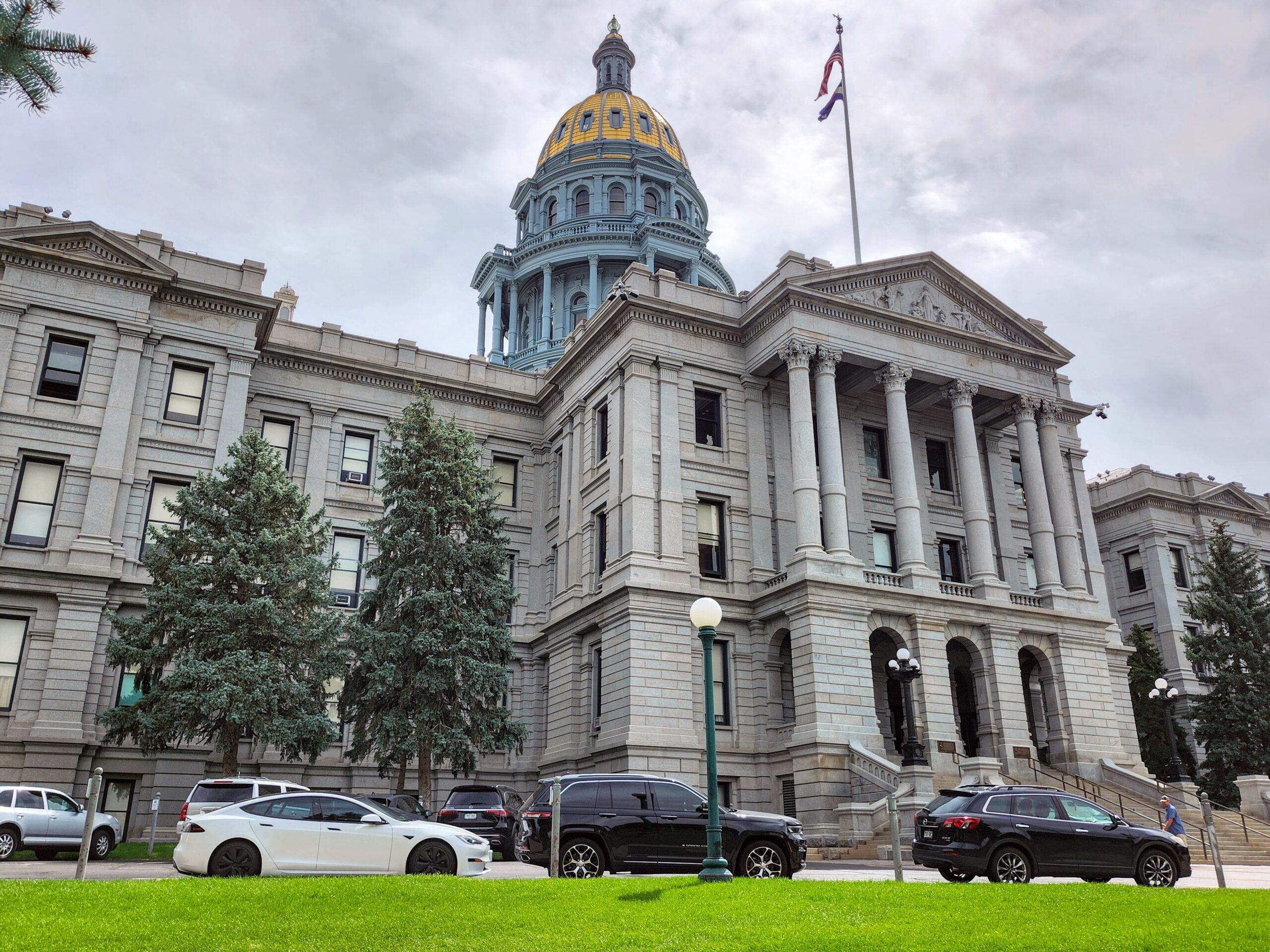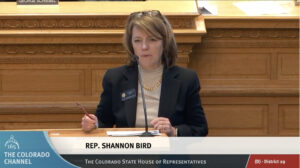Bussiness
2025 Colorado Legislative Preview: An enormous amount for business to watch | The Sum and Substance

In terms of resets, Colorado’s November legislative election results were negligible compared to what happened nationally. Republicans flipped three districts in the 65-member state House but still face a 21-seat disadvantage. Democrats’ 23-12 Senate margin is unchanged.
Yet, with the 75th General Assembly scheduled to open Wednesday, everyone from business groups to labor leaders and from environmental activists to construction-defect-reform advocates are approaching this 120-day session with a new fervor. Some are reacting to the shifting makeup of party bases nationally, others to Colorado’s downward spiral in economic-competitiveness rankings. The common theme, though, is an urgency for change from all parts of the political spectrum.
Some of that change will seek to reignite old battles with hopes of different outcomes. The state’s Labor Peace Act will be on the table for the first time since 2007. Legislators will debate for the umpteenth time in the past decade whether tightening rules around defects lawsuits could spur needed condominium construction. Familiar battles on oil-and-gas regulations and lawsuit damages are likely to re-emerge.
But economic changes are spurring new battles as well. The Colorado Chamber of Commerce is leading a coalition of business groups seeking regulatory reform. The Colorado Hospital Association is fighting at a time of industry distress to preserve drug-pricing discounts used by some two-thirds of its members. And technology leaders are battling from many directions to define and regulate artificial intelligence in a way that won’t choke Colorado’s ability to be a leader in that growth sector.
Major health care battle brewing
Rather than having one theme — like, say, the affordable-housing push that dominated the 74th General Assembly — this year’s legislative debates will be wide-ranging and complex, affecting nearly every business sector in Colorado in different ways. And in that sense, it may be a session like no other, where employers will need to stay alert and watch every bill coming down the pipe.
The first two major debates, however, are likely to involve health care and labor.
Prescription drugs are at the heart of the debate around the 340B program.
CHA leaders hope to work with allies and introduce a bill early in the session that would bar pharmaceutical manufacturers from putting restrictions on their facilities’ use of discounts through the federal 340B drug-pricing program. Under the program, hospitals that serve a certain percentage of uninsured or publicly insured patients get discounts of as much as 50% in buying a wide variety of drugs and can use the savings to fund operations.
Drug makers say the massive growth of the $66 billion program — 50% between 2021 and 2023 — is rife with abuse, and many have limited the number of contract pharmacies that hospitals can use in conjunction with the discounts. At a time when 70% of Colorado hospitals have unsustainable operating margins due to the skyrocketing cost of labor and supplies, however, hospitals say it’s a lifeline that is keeping some from shutting down.
While the debate will impact almost everyone who receives health care in some way, it primarily will be a fight between two organizations — the CHA and the Pharmaceutical and Research Manufacturers of America. The other early debate, however, could impact every employer and worker in this state.
Legislative attention again on unionizing votes

State Sen. Jessie Danielson draws applause from union members as she discusses a proposed change to the Colorado Labor Peace Act at a news conference in November.
Just two weeks after the election, several Democratic leaders announced that they would seek to upend Colorado’s 82-year-old Labor Peace Act, a unique compromise between right-to-work and union-state laws that requires two elections to unionize. Their goal is to eliminate the second election, which now requires a 75% vote to let organized labor deduct fees from all workers’ checks to fund union work and bargaining activities.
Labor leaders say the second election is an unnecessary hurdle that’s contributed to only 7% of Colorado private-sector workers being unionized, and they’ve challenged majority Democrats to prove why labor should support them by backing the bill. Major business groups have come out against it, saying it could force nearly 50% of workers who may have no union interest to hand over parts of their paychecks to labor and would create unnecessary barriers between managers and workers through unionization.
This fight happened before, when Democrats first won the House-Senate-governor’s office trifecta and made change to the LPA their first priority in 2007 — only to see Gov. Bill Ritter veto the bill because he did not like the process or lack of negotiations surrounding it. Democratic Gov. Jared Polis already has expressed reservations about the measure, setting up for a potential sequel.
Doug Friednash, a former Colorado legislator who chairs the national state and local government relations practice group for Brownstein Hyatt Farber Schreck LLP, noted that the battle comes as the state is falling in national economic-competitiveness rankings. And he suggested that, much like last year’s battles over property taxes and lawsuit-damages reform, it could spawn a ballot battle like a potential effort to make Colorado a right-to-work state and affect the overall tenor at the Capitol.
A legislative push for regulatory reform
“Americans like labor unions. That doesn’t really mean, though, that they agree workers should be forced to join a union or pay dues as a condition to employment,” Friednash said. “Taking this on could set off a firestorm.”

Loren Furman is president and CEO of the Colorado Chamber of Commerce.
Business leaders won’t just be playing defense, however, in their attempt to improve Colorado’s economic competitiveness, which has been harmed as the costs of living and doing business have risen into the top quartile nationally, according to CNBC. The Colorado Chamber is pushing a package of measures that would slow or roll back the growth of regulations, which a study found to be sixth highest in number among all states with 45% of regulations deemed to be redundant or excessive.
The package proposes that the state auditor’s office review the efficacy of existing regulations to determine if they are meeting their goals efficiently, as well as that legislators create a new regulatory oversight committee similar to a panel that now reviews tax law. It also seeks sunsetting mechanisms to be added to new regulations and asks legislators to consider caps on the number of new regulations, as states like Idaho have implemented.
“We’re offering a package of bold solutions to get our regulatory climate under control and provide relief to the business community,” Chamber President/CEO Loren Furman said. “This includes reducing current volume of regulations on the books and looking ahead to create more balance and transparency when passing new regulations.”
Construction-defects debate returns
Rep. Shannon Bird will try again to pass business-backed legislation seeking to reduce the number of defects lawsuits filed by condo owners against builders who claim the litigious atmosphere has sent insurance costs through the roof and led most developers to refuse to build owner-occupied multifamily housing. A similar effort passed the Senate last year but died in the House when Bird said there was no viable path for its passage.

Colorado state Rep. Shannon Bird speaks on the House floor during the 2023 legislative session.
This year’s version will be more consumer-focused, allowing homeowners to demand either that builders fix any defects or cover the cost of a third-party contractor to do so, Bird explained, to address the problem without the potential cost of litigation. Once again it will also seek to raise the threshold for filing a defects lawsuit to two-thirds of members of a condo community. And the Westminster Democrat is looking to fix a 2010 law requiring insurers to indemnify all contractors with joint and severable liability, which has led insurers to sell pricey wrap policies rather than policies to individual subcontractors less likely to be sued.
This time around, Bird talked early with the opposing Colorado Trial Lawyers Association, who said the bill needed more consumer focus. She is optimistic that the House may be more receptive, particularly after it passed laws last year to increase housing in transit-oriented areas, but she also knows it won’t be an easy sell.
“If we don’t take action, these very unique areas that were meant to get people out of their cars won’t be able to live up to their potential,” she said. “Are we going to fill those spaces up only with rental products and super-high-end condos, or are we going to give them a chance to have affordable owner-occupied properties?”
Bevy of other issues will take up legislative time
Tech-industry leaders have spent the off-session meeting on a task force about how to implement the nation’s most comprehensive artificial-intelligence law, which the Legislature passed last year but which isn’t set to go into effect until February 2026. They are still working with consumer advocates on details of how to protect people from potential algorithmic discrimination by AI programs while not being so burdensome that the rules will drive companies out of state, and a proposal is anticipated this session.
Advocates for the rights of people with disabilities have suggested a package of changes to the Colorado Anti-Discrimination Act, meanwhile, that could offer larger lawsuit awards, which business leaders have said could be particularly costly for small employers. And business groups are waiting to see if plaintiffs’ attorneys make a third attempt to make it easier to file lawsuits alleging violations of the Deceptive Trade Practices Act, which generate higher awards and, as such, are more attractive cases for law firms to take.
The oil-and-gas industry had hoped to be the one sector that wouldn’t be embroiled in more battles this year after it struck a deal with Polis and major environmental groups last year in which it accepted a new fee and some new rules in exchange for a freeze on major new legislative or ballot-driven regulatory proposals through the end of 2026. However, groups that were not a part of the deal reportedly are shopping bills that would attempt again to ban new drilling after 2030 and that would seek to put a first-in-the-nation ban on oil and gas advertising into place — proposals industry leaders will fight.
Budget debate also will have impact

Doug Friednash is a shareholder at Brownstein Hyatt Farber Schreck LLP.
“We were hopeful it would be quiet, but we are already hearing rumors that it will not be,” said Lynn Granger, who became president and CEO of the Colorado Oil & Gas Association on Jan. 1. “There needs to be an accountability — and some education given to people about our industry who are not familiar with all the regulations that have happened.”
All of this, meanwhile, will take place against the background of a roughly $670 million budget shortfall that will require cuts or revenue increases expected to draw business leaders into a fiscal balancing fight in which they usually are not involved. Polis, for example, has suggested cutting $110 million in highway funding to deal with the gap, and he also proposed converting state-chartered workers’ compensation insurer Pinnacol Assurance into a private company in a move that could bring money to the state and help the insurer.
Friednash said the combination of issues could do a lot to boost the state’s ability to attract jobs and workers or could continue its worrisome downward trajectory in that space.
“You put all of those things together, and it’s about what kind of economic climate we have,” he said. “We need to be careful.”









